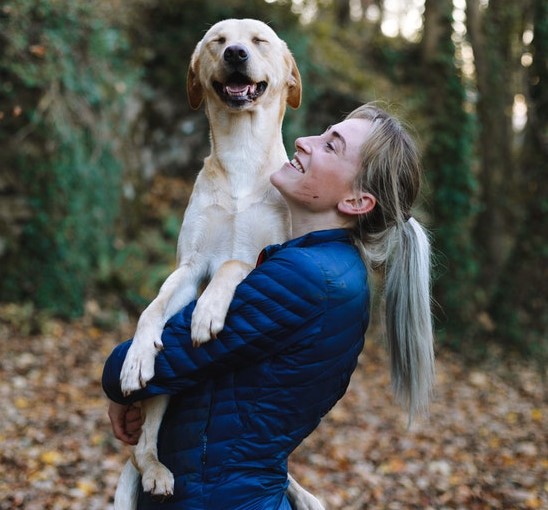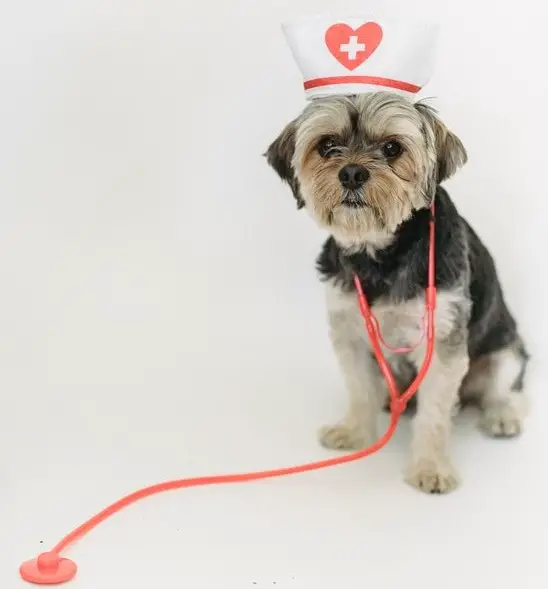Most dog owners get their dogs neutered or spayed due to aggressiveness and other behavioral issues. Neutering is the process of removing a male animal’s reproductive organ. Similarly, females can also get sterilized, although the proper term for them is called spaying. The primary benefit of this process is to prevent unwanted breeding. However, undergoing this process is also believed to help the dog maintain positive behavior and eliminate the possibility of them getting prostate and testicular cancer.
After undergoing surgery, do dogs get depressed after being neutered? Neutering is an entirely safe process, but some of its side effects range from depression, increased aggression, anxiety, or sometimes clinginess. Worry not, for these side effects do not last for a long time. During the recovery process, a dog may cry because there is still some pain from the surgery. While some dogs can endure the pain, there are still some who might whine or whimper after getting spayed, and that is normal.
Deciding whether to neuter your dog or not can be difficult, especially if you want to see beautiful pups from your most loved dog. There are many factors to consider, and pet owners worldwide have different views on the topic, but ultimately, the final decision will still be from you. You know your dog best, so no one can decide for you. A dog can be neutered at any age as long as they are healthy, but dogs are usually neutered when they are six to nine months old. In some cases, dogs are even neutered as early as eight weeks old.
What Can You Do After Your Dog Got Neutered?

While neutering is a safe process, it can still be painful for some dogs. A pet parent must be beside their pooch after the surgery to make them feel safe and secured. After bringing the dog home, they may feel disoriented, anxious, or even depressed. However, this is entirely normal, and it will not last long. Due to this, a person should be extra careful and not let their dog feel neglected. Here are some things a pet parent can do after their dog gets neutered:
- Make them feel comfortable. Your dog just went through a lot of stress after the surgery, so be sure to make them feel comfortable. Ensure that they stay in a quiet, dim place where they can rest peacefully with a minimum amount of distraction. Check if the bed is comfortable. A dog might feel disoriented after the surgery, so be sure to make them as comfortable as possible.
- Limit food and water intake. After the surgery, it is advisable to limit your dog’s water intake because it may cause vomiting. Offer just a tiny amount of water to avoid this from happening. Meanwhile, the amount of food a dog can eat should also be limited. Only provide them with half of their usual food serving in the first 24 hours. If a dog vomits after food or water intake, do not force them to drink or eat.
- Give them their prescribed pain medication. Within 24 to 36 hours after the surgery, the pain medication given to a dog may wear off, so it is best to provide them with their pain medication, as prescribed by the veterinarian. Strictly follow the instructions given by the veterinarian for the comfort of the dog. Remember not to give dogs over-the-counter medication or human medication for these can be harmful to them. Just follow what the vet prescribed, and everything will be fine.
- Prevent them from doing physical activities. The instructions given by the veterinarian are very important and should always be kept in mind. If the vet said that the dog should not go running and jumping around for at least two weeks after the surgery, follow it. If possible, carry the dog around, especially when going up and down the stairs. Some new rules may be a little stressful for you as a pet parent, but it is for the best of your dog.
- Take care of your dog’s body. Sometimes, your dog does not know better and continues to do things harmful to their newly surgerized bodies. It is your responsibility to make sure your pet recovers well at home. Do not let your dog lick their body, especially where there may be some stitches because it might lead to infection. You can help them prevent licking themselves by allowing them to wear cones. Also, keep in mind not to bathe your dog ten days after the surgery. Lastly, do not forget to check the incision now and then check if it is healing well or if there are any signs of infection.
What are the Benefits of Neutering?

A person gets their dog neutered for many reasons, but most people do it because it is beneficial for their dog’s health in the long run. Pet owners can also benefit from it, as the surgery also helps dogs improve their behavior. Not sure whether getting your dog neutered is the right choice? Here are the other reasons why people get their pet neutered:
- It reduces the chance of cancer. Neutering or spaying can be done for both female and male pets. When a pet gets neutered, it reduces the risk of getting cancer. Spaying females reduces the risk of breast cancer and uterine infections. Similarly, it removes the possibility of testicular and prostate cancer for males. Older dogs who did not undergo neutering might develop testicular tumors or prostate diseases later in their lives.
- Positive behavior. Some dogs have behavioral issues, and it is observed that most male dogs who underwent neutering surgery tend to be happier and have a well-adjustment temperament after. Still, the effects on the aggressiveness of a dog can differ depending on the dog’s breed. Some dog breeds become temporarily aggressive after the surgery, but only because of the temporary hormone imbalance. To be sure, consult your veterinarian first before deciding on anything.
- Less urge to mate. Roaming, mounting, masturbation, and attraction to female dogs can be reduced or eliminated by the surgery. However, the hormones responsible for these behaviors will not be gone from their system after the procedure. Instead, their hormones may lessen gradually over a few days or few months.
- Lessen the number of unwanted pets. By letting your furry friends undergo the procedure, you will be able to limit or remove your dog’s capability to reproduce. This can reduce unwanted or unplanned pets in a community and decrease the number of homeless and starving dogs. Spaying and neutering your pets can also reduce the number of pets to undergo euthanasia.
- Less peeing inside the house. Dogs and other animals tend to leave their scent in a place that they call their own by peeing on it. Most male dogs have the desire to do this, which is why they mark their territory even inside your house. Spaying or neutering may help in reducing this behavior or may completely stop it. Dogs usually stop their markings several weeks or months after the procedure. However, if a pattern of marking their territory has been made, getting them neutered may not affect them since it has already become the dog’s habit.
Are There Any Risks to Neutering?
Young pups and healthy animals can recover from neutering without any health issues. Since the surgery is a safe procedure, the biggest concern for pet owners is not the neutering but the recovery process. Monitoring the dog should be done constantly, especially since we do not want the dog to lick their incision line until it is fully healed. While recovering, they may act a little differently and cause you to ask, “Do dogs get depressed after being neutered?” Fret not, for any strange behavioral changes you might notice are entirely temporary.
On the other hand, when planning to get older dogs to undergo neutering, the benefits should be weighed against the risks connected with anesthesia and. Yes, the surgery is still safe for older dogs. However, complications might arise when giving older dogs anesthesia for the surgery. The veterinarian should do a physical examination, urine test, blood tests, and other additional screening before giving an older dog surgery. These tests can help which anesthetic protocol would be safest for the dog.
When finally settling on deciding whether to get your dogs neutered or not, always keep in mind that your decision is for the best of your beloved friend. While this surgery can help a dog live a longer and healthier life, always ask for your veterinarian’s advice when making a decision. It also helps to educate yourself by reading different articles about the pros and cons of neutering. If you ever decide to push through, remember that dogs may feel sad, anxious, and even depressed after undergoing the procedure, so be sure to be always by their side throughout the process. Again, neutering dogs and other animals is a safe procedure, so there is no need to worry.

